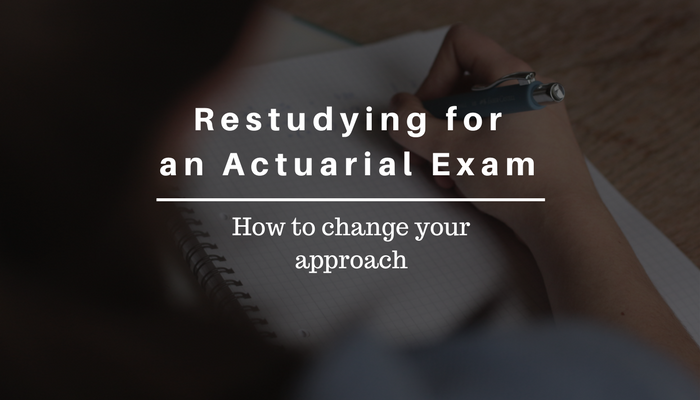Most common pitfall
I failed Exam MLC on my first attempt. When I decided to retake the exam one year later, I planned on taking the same general approach: read through the manual, and then do practice problems/tests the last couple of weeks.
I quickly found myself bored and disengaged with the readings. I found it hard to stay awake for an entire study session. I was experiencing the fluency illusion.
The fluency illusion is the misconception that because the information is easy to recall now, it will be easy to recall in the future.
Restudying for an exam makes you especially susceptible to this illusion. The material already looks familiar since you studied it before – you may read a chapter and think to yourself that you already know the material since you recognize it from last time.
The main consequence of the fluency illusion is that you don’t learn much because you don’t fully engage with the material.
Recognizing the information now should not be mistaken for the ability to recall the information later. How do you break through this plateau in your studying?
Revising your approach for retaking exams
There is a simple solution to overcoming the fluency illusion: start your exam prep with practice problems rather than re-reading the manual.
You want to figure out which concepts are worth your time to review. Practice problems cut through the BS and tell you exactly what you do and do not know. There is no fluency illusion involved – you either got the correct answer, or you didn’t.
When you find that you consistently miss a certain type of problem, then you can selectively re-read that chapter of the manual. This reverses the typical study process: practice problems first, read the manual later.
We’ve talked about how starting with practice problems can be an efficient way to learn, but this approach is even more critical when you are retaking an exam.
Practice problems are so effective for retaking exams because they are an example of active recall. We discuss this in-depth in the sample chapter of our book, but active recall is the most effective way to review and retain information long-term.
When restudying for an exam, you should combine active recall with the spacing effect (also discussed in our sample chapter) for the best use of your time.
Final Thoughts
Your approach for retaking an exam should be different than your approach on the first attempt.
The goal of the retake should be to fill the gaps on the concepts you do not know, rather than to indiscriminately read the entire manual. Active recall is the most efficient way to identify and fill those holes.
When I was restudying for MLC, the best thing I did was to stop re-reading the manual and jump directly into practice problems.
Not only was this a more effective way to learn, but it made the study sessions more challenging and enjoyable because I could feel that I was making progress.
Hopefully, you never have to retake an exam, but if you do, don’t make the mistake of reusing your same old study approach.
Study Smart, Pass Fast, Live Life
Mike & Roy

